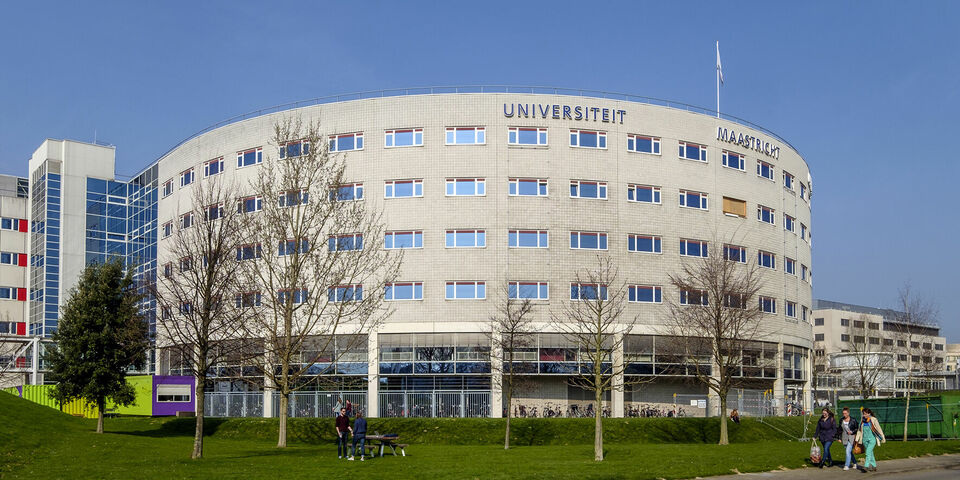TUs oppose new technology programs at Maastricht
The four universities of technology are strongly opposed to Maastricht University's plan to launch, either in 2020 or 2021, its new Bachelor's of Circular Engineering and its Master's of Molecular Imaging and Engineering. According to TU/e Rector Frank Baaijens, both programs “expand the range of programs on offer in the Netherlands unnecessarily”. This proposal, he believes, thwarts plans the four TUs have to make large infrastructural investments, for instance in laboratories, jointly.
Despite all the objections voiced by Eindhoven, Delft, Twente and Wageningen, Minister Ingrid van Engelshoven has approved both of these Maastricht programs. Professor Thomas Cleij, Dean of the Maastricht Faculty of Science and Engineering, says in Observant, the university's newsletter, that he fails to understand why the TUs are now suddenly reacting so strongly to the announcement that his university wishes to launch these new programs. According to Cleij, the TUs are acting as if MU has surprised them with this move, while he says these plans were made known some time ago.
Cleij in Observant: “We have never made a secret of our proposed programs. When the Sector Plan, intended for the minister, was drawn up, I myself and other staff at UM broadcast news of the plans widely throughout the country. What are the strengths of the country's various science faculties? And, what plans for the future are there? And, let's not forget, in the spring we universities swapped drafts with each other. The whole of the Netherlands knew about this.”
The Maastricht dean thinks the protests are being voiced chiefly by the Executive Boards, because they were poorly informed. Whether this was a task the deans of the respective departments should have fulfilled, he leaves unsaid.
Content
In response, TU/e Rector Frank Baaijens says that the deans of the four technological universities did not feel they were well informed about the proposed content. “The content of these programs was not made known to the deans,” says Baaijens, “nor were the programs discussed as agenda items at, say, the consultative meeting of science deans. For example, in terms of content, the Maastricht Bachelor's of Circular Engineering strongly resembles the same bachelor's offered by our Department of Chemical Engineering and Chemistry.”
In Observant Cleij denies the criticism that Maastricht would not be offering anything new with these two programs. “Not true,” says Cleij, “because Circular Engineering as we intend to teach it cannot be studied anywhere else. Nowhere in the world. We are going to train engineers who think differently, who realize that materials come from somewhere and go somewhere, and that this process leaves a footprint. And this program will bear the Maastricht hallmark: plenty of electives and small scale.”
Sensible way forward
According to Baaijens, underlying this difference in opinion is a broader discussion about the profiles of the universities. Baaijens: “TU/e opts to have a clear engineering profile. The concentration of engineering disciplines at the 4TUs is, in our opinion, a sensible way forward, partly in view of the large infrastructural investments, such as those in laboratories, these programs require. What's more, the Netherlands already has enough capacity where a number of programs are concerned - think of chemistry - and that provision doesn't need to be expanded.”
The CDHO, a committee that advises the minister on efficiency in higher education, has already given the green light for the English-taught bachelor's and master's. Not that she was happy with the name ‘Circular Engineering’. The committee advises a name that is in keeping with related studies in the Netherlands. But that is not going to happen, says Cleij. “The name is very clear. Everyone instantly knows what we mean by it.”
According to him, this initiative has done no harm to relations with the other science departments. “Not at all. I know for sure that the country's deans are not worried about MU's plans. There is enough space in our country. The CDHO thinks so, too.”
Incidentally, the entire issue is strongly reminiscent of the wrangling between Maastricht and Eindhoven that occurred in late 2011, when the two institutions had a heated exchange in response to the Maastricht Science College, launched by MU in September of that year. At the time, MU was accused by the then TU/e Executive Board of violating agreements by launching its new English-taught bachelor's in the physical sciences. In response, professor Louis Boon, then the driving force behind the Maastricht initiative, spoke disparagingly of TU/e's programs and approach.


Discussion